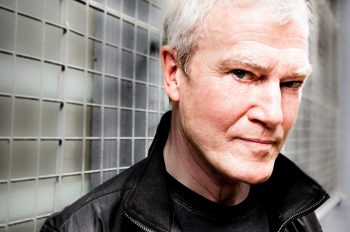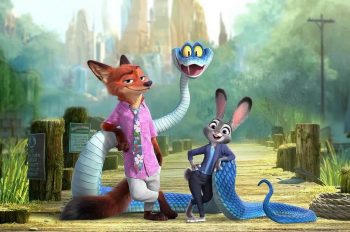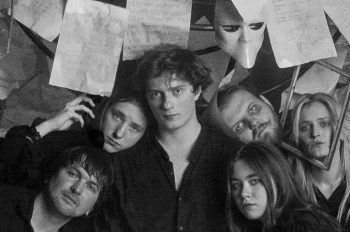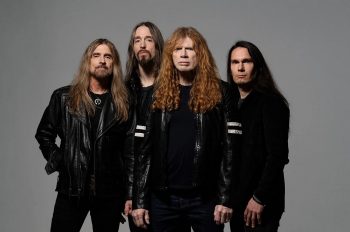Rockcult: After the Evidence album came out only instrumental albums: B-Movie (Ballardian Video Neuronica), Evidence of Time Travel, London Overgrown, Codex by Ghost Harmonic, The Machine. When will you release the full-fledged vocal album again?
John Foxx: We are working on it — three albums actually — one with Robin Simon and one with Benge. I’m writing the songs for the Benge record and we have already recorded several tracks with Robin. Jori Hulkkonen has also sent some tracks for me to work on, so that will be another album. I’ve also just finished two songs with Ghostbox records which will be released very soon. All of these are vocal recordings.
Rockcult: Now you often give concerts. How different is work for you in the studio from the concert activity?
Foxx: Completely different. The studio is all about composition. Then editing and mixing the instruments and voice, using your instincts and using the entire recording studio as a tool for composition — a sort of experimental laboratory. It’s really where I like to be best. When you perform live, you have to condense all that into something workable, portable and playable. The two activities are interdependent and closely related — but completely different.
Rockcult: You have been working with Benge for a long time. How did you meet?
Foxx: We had interviews in the same edition of an electronic magazine – I thought he sounded interesting so I went down to his studio. We got on very well and thought we might try recording together. I like his style – he’ll only work with analogue instruments.
Rockcult: In 1985 you left the music industry for nearly 12 years. Why was the break so long?
Foxx: I had two children, a marriage and three dogs to deal with. Plus I was out of fashion in the UK. I didn’t like the kind of music that was popular here in the mid to late eighties and I didn’t fit in with it. I carried on recording and writing, but didn’t bother to release anything.
I think its good to be forgotten sometimes – forces you to confront the reasons why and do something about it… Otherwise you give up and prove the neglect justified.
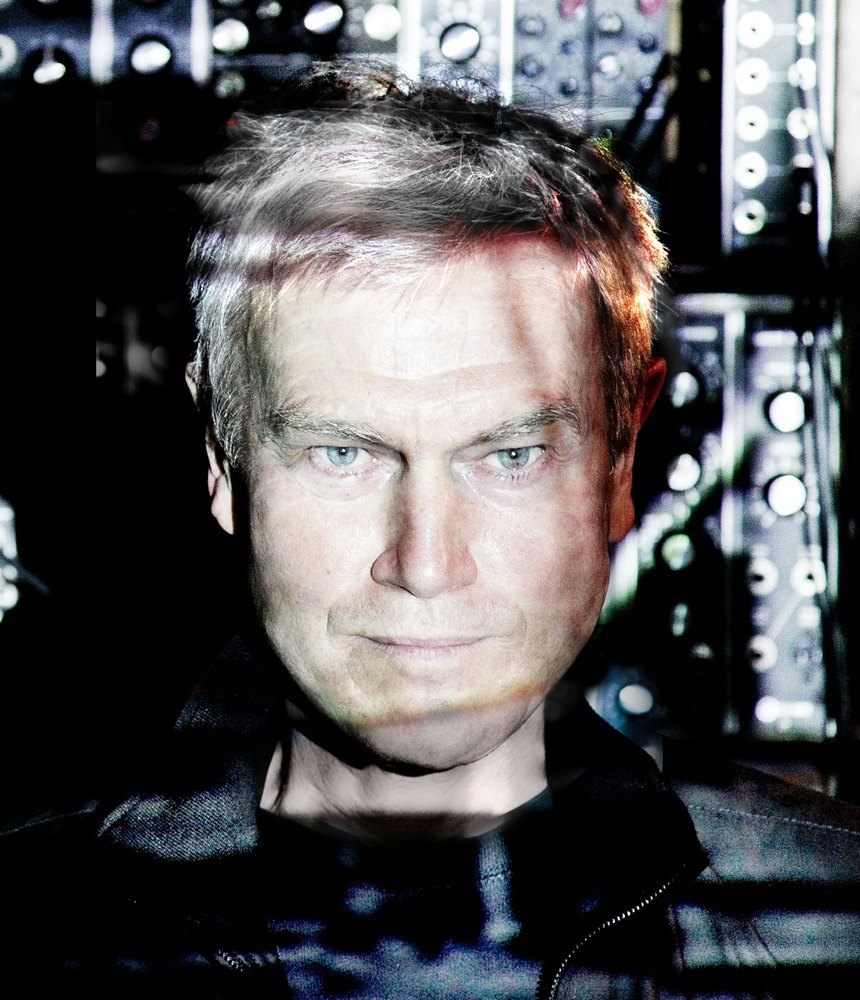
Rockcult: Do you keep in touch with those who you work with in the 80’s? For example, with Gareth Jones, Eddie and Sunshine or Anne Clark?
Foxx: Our paths cross occasionally and it’s always good to see them, or hear how they’re getting on. You feel connected forever after you’ve worked with someone during those formative years.
Rockcult: I saw a video where you work on the track Where You End And I Begin in the studio together with Tara Bush of I Speak Machine. Do you also work together on other collaborations, or separately?
Foxx: Most collaborations are done in the studio, with both of us present. Occasionally, I work by exchanging electronic files. I like both methods. There is a certain chemistry that comes from the physical presence of everyone working together in the studio. But that can sometimes interfere with the process, too. If you’re completely alone, you can sometimes concentrate better on certain specific things. I try to use whatever feels most appropriate for each project.
Rockcult: What do you know about Russian art?
Foxx: I’ve always been impressed and affected by that period of Russian Constructivist art — Vladimir Tatlin – the marvellous vision of his tower – it seems such an archetypal image – almost surreal. It somehow goes deep into the unconscious and stay there. I remember a reconstruction of it (much smaller scale of course) in the Royal Academy in London, It reminded me of Bruegel’s Tower of Babel, which I also like.
The work of Lissitzky, too – these two especially affected certain forms of art and graphic design in the west, certainly affected my ideas about machines — and music as a kind of universal design and the relationship between music and architecture. At the absolute opposite pole, I also admit to even enjoying the wonderful sentimentality of Chagall — I saw his work recently in southern France.
Rockcult: Do you have a desire to perform in Russia?
Foxx: Of course.
Rockcult: Have you been here as a tourist?
Foxx: Not yet.
Rockcult: Your joint work with Gazelle Twin (A Falling Star, Changelings) was amazing. Will there be any more joint work in the near future?
Foxx: Oh yes — and thanks for your comment – I love her voice and her imagery and songs. She’s a true, ferocious original and whenever there’s a chance, I will always ask her to get involved.
Rockcult: What exactly influenced the fact that in the first place you decided to make a career as a musician, and then as an artist?
Foxx: Well, I began as an artist then became a musician out of necessity — because there was a very poor scene for painters in England for a while, just as I left art school — everyone had moved to New York in the mid 1970’s.
But there was a great music scene in London, and I loved music almost as much as painting — so I thought I’d start a band as a kind of art project, make one record, then resume painting again. It’s actually taken over forty years to get back to my original position. I had no way then of realizing how totally absorbing making music actually is.
John Foxx And The Maths - He's A Liquid (Live)
Rockcult: You can equally successfully write as very cold and detached compositions and albums, and very exalted. For example, Metamatic and The Garden. Is it difficult to switch when you create such different things?
Foxx: I think they are both in here somewhere — and the environment and social climate, plus what is happening to me personally, affect their emergence. For instance Metamatic was partly a response to the grey, brutalist, very difficult London of the 1970’s. The Garden was also a reflection on the current state of England, but after I’d walked around it, then gained some new perspectives, after being in Italy for a while.
Rockcult: You have worked with many musicians over the years of your music career. Is there someone else you have not worked with yet, but you have such a desire?
Foxx: There are always people whose work interests me – I always want to get involved whenever I hear something original. It’s instinctive — I think music is really a conversation and we all would like to join in and make our statements. That’s what keeps it alive. And that’s what keeps us all alive.
Rockcult: What inspires you now?
Foxx: Architecture, politics, privacy, tranquility. Trying to maintain a useful perspective on our ever changing world. The North of England, Europe, new Music, new Art, new books. Always being amazed by the way the unconscious and instinct work in writing music. Also a few negative things – an active and useful dislike of some new and old art and music, and a few of the things that are happening all around us.
Rockcult: Over the past few decades, the technology of creating music has changed very much. How much has it changed for you personally? Do you use digital technology, or continue using only analog equipment?
Foxx: I use anything that gives a good result and is simple to operate — that means it is well designed. Analogue tends to seem simple and is often simple to operate, but the sounds and possibilities are infinite and really complex in a very satisfying way. The machines can also be unpredictable even unstable, but this will give you extreme and beautiful sounds.
I enjoy the organic disobedience of analogue machine, too – just as I used to enjoy the disobedience of my friends at school. I have always been attracted to people who have an instinctive disregard of imposed order. I believe you can only arrive at true beauty through a strategic circumnavigation of those who might like to control.
Rockcult: Do you think it is easier or harder for experimental musicians to develop and make music their profession nowadays, in comparison with how it was in the 70’s and 80’s?
Foxx: No — I think it’s easier. The web is always waiting. It’s just harder to make enough money to survive, but I think this is beginning to change as streaming becomes more universal. Streaming seems to allow finer categories of music to become generally available. We’ll see.
Rockcult: Can you advise the 5 best albums you’ve heard lately?
Foxx: — Burial — Untrue
— Keith Jarrett playing Shostakovich
— Gazelle Twin — Unflesh
— The Soft Moon — Deeper
— Adult — Detroit House Guests
— The Magnetic Fields — 50 Song Memoir
— Hannah Peel — Awake But Always Dreaming
That’s too many already, so I’d better stop.
Rockcult: What do you like to do while resting from creative work?
Foxx: I think about the next move. I’m always plotting.
